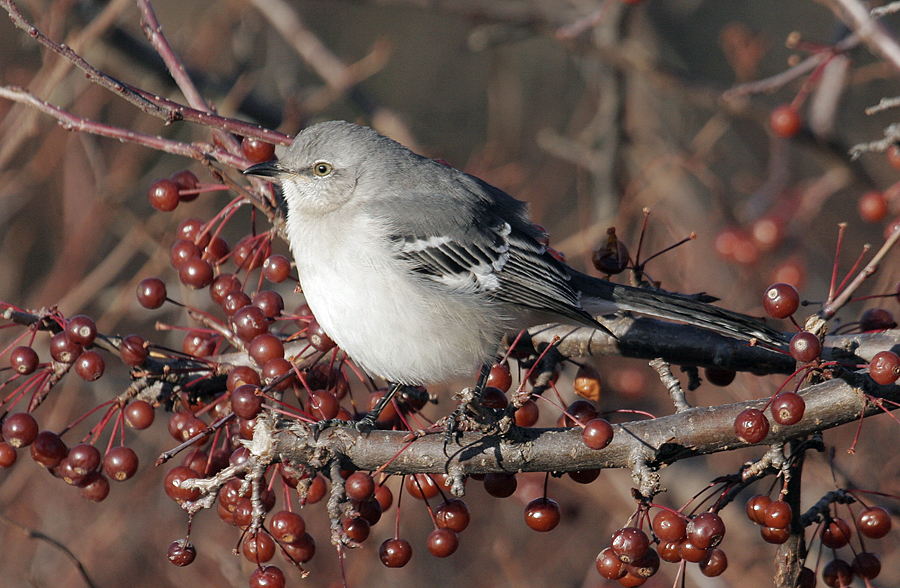The Northern Mockingbird

The familiar Mockingbird outside of its breeding season is most often found by itself defending its territory from other mockingbirds, or any fruit eating bird such as American Robins, Cedar Waxwings and European Starlings as well as cats and squirrels. The Mockingbird guards its food supply and easily intimidates any other bird who tries to come near: the mocker wants to keep all the fruit for itself all winter long. The Mockingbird is very vocal even at this time of the year. Its song consists of groups of phrases usually repeated three or more times and often they are mimicking other birds that are in the area. Many years ago there was a Mockingbird that was imitating a Virginia Rail in the Dry Dell along Narcissus Path, and another time one was heard doing a perfect Whip-poor-will imitation.
Another characteristic trait of the Mockingbird is its habit of wing flashing. When feeding on lawns, the mocker moves a bit, stops, opens its wings half way, then fully, then folds them, repeated several times. Mockingbirds are permanent residents at Mount Auburn though there are just two or three pairs currently at Mount Auburn.
Mockingbirds are quite intelligent. For the past three years we have had a winter resident Mockingbird who defends a crab apple tree in our front yard. We feed it raisins which I leave on the porch rail. Each morning I come out and make some noise and the Mocker comes from nowhere to wait for the raisins, actually landing on the rail while I’m placing them down. Often if we sleep late, the Mocker makes scolding sounds and is letting us know its hungry. In another note from Wikipedia: “In a paper published in 2009, researchers found that mockingbirds were able to recall an individual human who, earlier in the study, had approached and threatened the mockingbirds’ nest. Researchers had one participant stand near a mockingbird nest and touch it, while others avoided the nest. Later, the mockingbirds recognized the intruder and exhibited defensive behavior, while ignoring the other individuals.”
Leave a Reply